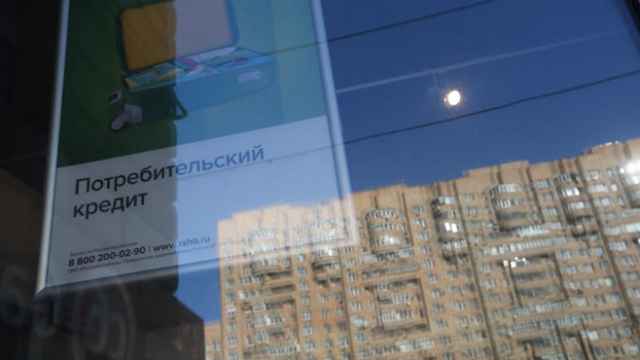The Russian government on Monday announced that it will subsidize mortgage rates of 12 percent, a major step toward propping up an industry beset by high financing costs, the rising price of materials and falling consumer demand.
The government had pledged to subsidize rates of 13 percent earlier this month, but lowered the rate further after the Central Bank last week cut its key interest rate from 15 percent to 14 percent.
The move will have a significant impact on the market for new, budget real estate, where mortgages are most prevalent. By the end of 2014, about 50 percent of deals on new properties in this segment were made with mortgages, market analysts polled by The Moscow Times said.
When the Central Bank unexpectedly hiked its key interest rate 6.5 percent points in December in a bid to cool the frantic currency market, hiking the cost of lending across the board, developers were justifiably concerned.
The impact was immediate. "In the first two months of the year, mortgage lending fell by about 12 to 15 percentage points, compared to 2014," said Denis Bobkov, head of analytics at real estate development group OPIN.
This presented a big problem for developers with properties to sell, as well as for the large state banks that dominate the mortgage lending market.
So when the government stepped in this month, pledging up to 20 billion rubles ($341 million) in subsidies to state banks to lower mortgage rates, its decision was met with widespread relief. The subsidies apply for loans of up to 8 million rubles ($136,000) in Moscow and St. Petersburg and 3 million rubles ($51,000) in other areas of Russia.
The subsidies had an immediate effect on the market. Est-a-Tet, a realty firm in the Moscow region, saw calls from interested buyers rise by 10 times following the decision, according to Alexei Novikov, head of the company's mortgage center.
State banks on Monday lost no time declaring their new offers, with market leader Sberbank announcing that it is accepting application for mortgages to be issued at the rate of 11.9 percent.
Sberbank's offer has already piqued homebuyers' curiosity. "We immediately saw interest on the part of potential clients," Bobkov said. "[This] gives reason to say demand will bounce back 15 to 20 percent in the mass market in the short term."
Still, sales are likely to stay low even with government help. Russians, who remain deeply cautious after last year's volatility, are expected to be hesitant about making major financial decisions.
"Irrespective of mortgage subsidizing, we expect to see sales fall this year by about 30 percent, based on the data we analyzed from public players," said Maria Kolbina, an analyst at VTB Capital.
This dip follows a boom last year in which Russians safeguarded their rapidly devaluing rubles by snapping up real estate.
But lower consumer appetite isn't developers' only problem. "The production cost of construction has grown significantly," said Maria Litinetskaya, head of real estate firm Metrium Group.
The cost of financing has risen due to the Central Bank's defense of the ruble, even as the price of building materials rose following the devaluation of the ruble last year.
Construction is proceeding normally for now, as developers complete long-planned projects for which they have already received permits. But other projects could be frozen, leading to a deficit of new properties in 2016-18, Litinetskaya said.
Contact the author at [email protected]
A Message from The Moscow Times:
Dear readers,
We are facing unprecedented challenges. Russia's Prosecutor General's Office has designated The Moscow Times as an "undesirable" organization, criminalizing our work and putting our staff at risk of prosecution. This follows our earlier unjust labeling as a "foreign agent."
These actions are direct attempts to silence independent journalism in Russia. The authorities claim our work "discredits the decisions of the Russian leadership." We see things differently: we strive to provide accurate, unbiased reporting on Russia.
We, the journalists of The Moscow Times, refuse to be silenced. But to continue our work, we need your help.
Your support, no matter how small, makes a world of difference. If you can, please support us monthly starting from just $2. It's quick to set up, and every contribution makes a significant impact.
By supporting The Moscow Times, you're defending open, independent journalism in the face of repression. Thank you for standing with us.
Remind me later.






